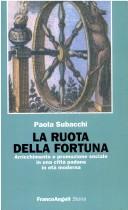| Listing 1 - 7 of 7 |
Sort by
|
Book
ISBN: 0231173466 0231543263 9780231543262 9780231173469 Year: 2017 Publisher: New York : Columbia University Press,
Abstract | Keywords | Export | Availability | Bookmark
 Loading...
Loading...Choose an application
- Reference Manager
- EndNote
- RefWorks (Direct export to RefWorks)
Many of the world's major economies boast dominant international currencies. Not so for China. Its renminbi has lagged far behind the pound, the euro, and the dollar in global circulation-and for good reason. China has long privileged economic policies that have fueled development at the expense of the renminbi's growth, and it has become clear that the underpowered currency is threatening China's future. The nation's leaders now face the daunting task of strengthening the currency without losing control of the nation's economy or risking total collapse. How are they approaching this challenge?In The People's Money, Paola Subacchi introduces readers to China's monetary system, mapping its evolution over the past century and, particularly, its transformation since Deng Xiaoping took power in 1978. Subacchi revisits the policies that fostered the country's economic rise while at the same time purposefully creating a currency of little use beyond China's borders. She shows the key to understanding China's economic predicament lies in past and future strategies for the renminbi. The financial turbulence following the global crisis of 2008, coupled with China's ambitions as a global creditor and chief economic power, has forced the nation to reckon with the limited international circulation of the renminbi. Increasing the currency's reach will play a major role in securing China's future.
Foreign exchange --- Renminbi. --- Finance --- Monetary policy --- CNY (Money) --- Ren min bi --- RMB (Money) --- Yuan (Money) --- Money --- Cambistry --- Currency exchange --- Exchange, Foreign --- Foreign currency --- Foreign exchange problem --- Foreign money --- Forex --- FX (Finance) --- International exchange --- International finance --- Currency crises --- China --- Commerce. --- Renminbi --- E-books --- S10/0320 --- S10/0420 --- S10/0470 --- China: Economics, industry and commerce--Money and banking: since 1949 --- China: Economics, industry and commerce--Public finance and taxation: since 1949 --- China: Economics, industry and commerce--Commerce inside China: since 1949
Book
ISBN: 9780300244045 0300244045 Year: 2020 Publisher: New Haven: Yale university press,
Abstract | Keywords | Export | Availability | Bookmark
 Loading...
Loading...Choose an application
- Reference Manager
- EndNote
- RefWorks (Direct export to RefWorks)

ISBN: 8820498782 Year: 1996 Publisher: Milano : F. Angeli,
Abstract | Keywords | Export | Availability | Bookmark
 Loading...
Loading...Choose an application
- Reference Manager
- EndNote
- RefWorks (Direct export to RefWorks)
Piacenza (Italy) --- Economic conditions. --- Social conditions.
Book
ISBN: 9780300252606 0300252609 Year: 2020 Publisher: New Haven, Connecticut : Yale University Press,
Abstract | Keywords | Export | Availability | Bookmark
 Loading...
Loading...Choose an application
- Reference Manager
- EndNote
- RefWorks (Direct export to RefWorks)
A penetrating account of how unchecked capital mobility is damaging international cooperation, polarizing the economic landscape, and ultimately reshaping the global order When it comes to the afflictions of the global economy, almost everyone—and especially Donald Trump—is quick to point the finger of blame at the state of international trade. But what about unconstrained capital flows? Unfettered capital has resulted in a string of financial and economic crises that have left our political systems strained and dialogue corroded. The once perceived benefits of openness have been cast to the wayside and the cracks in the global order can no longer be ignored. Paola Subacchi argues that international cooperation and interdependence have become crippled. Regional restrictions will soon strengthen and a multipolar order will take shape, leading to a distinctly transformed economic landscape in which China challenges the dominance of the US dollar. Combining history, analysis, and prediction, this book provides penetrating insight into the challenges facing the international economic order.
Article
Abstract | Keywords | Export | Availability | Bookmark
 Loading...
Loading...Choose an application
- Reference Manager
- EndNote
- RefWorks (Direct export to RefWorks)
Multi
ISBN: 9780231543262 9780231173469 Year: 2016 Publisher: New York, N.Y. Columbia University Press
Abstract | Keywords | Export | Availability | Bookmark
 Loading...
Loading...Choose an application
- Reference Manager
- EndNote
- RefWorks (Direct export to RefWorks)
Book
ISBN: 9780815727156 Year: 2016 Publisher: Washington, D.C. Brookings Institution Press
Abstract | Keywords | Export | Availability | Bookmark
 Loading...
Loading...Choose an application
- Reference Manager
- EndNote
- RefWorks (Direct export to RefWorks)
| Listing 1 - 7 of 7 |
Sort by
|

 Search
Search Feedback
Feedback About UniCat
About UniCat  Help
Help News
News